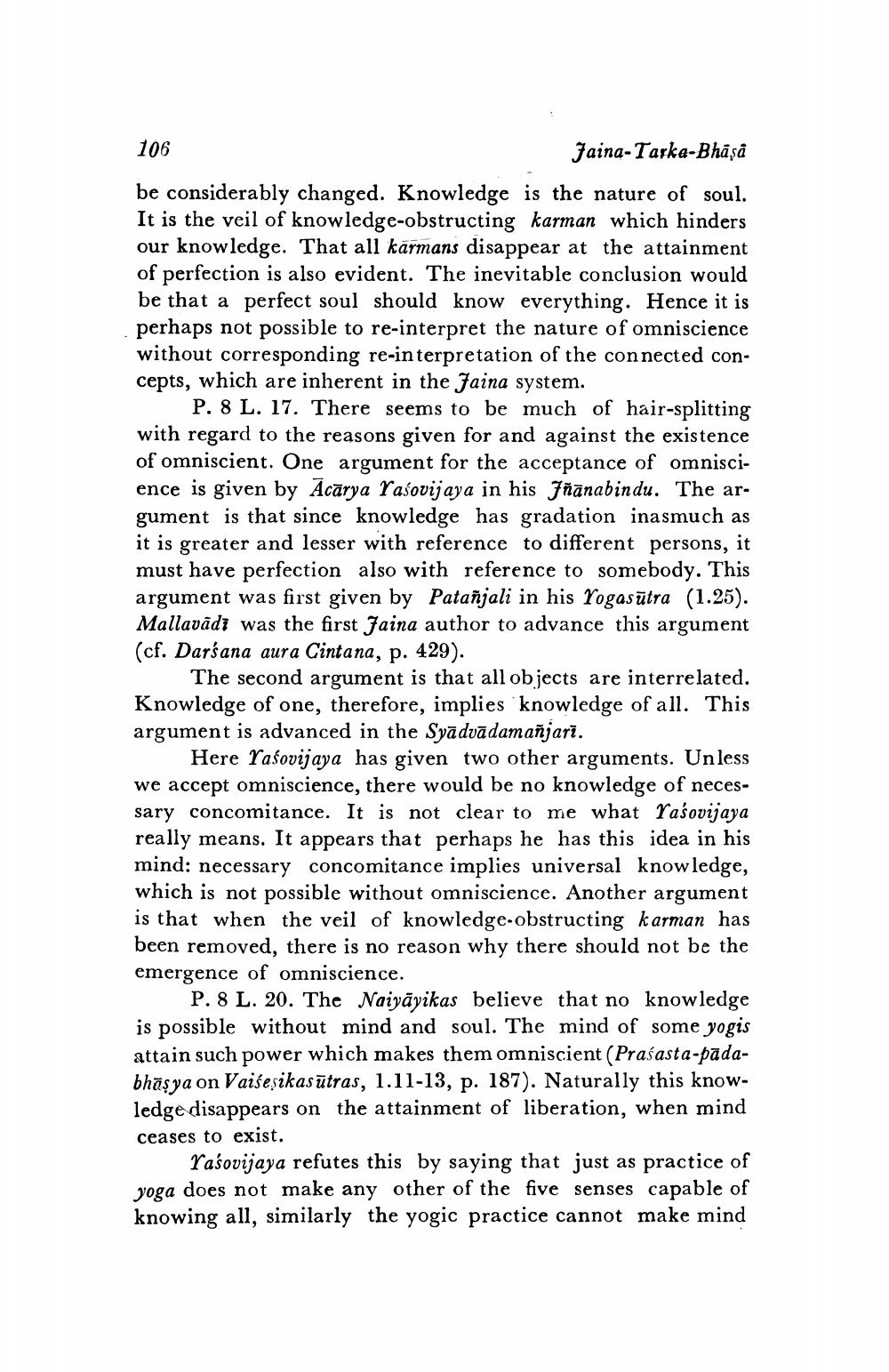________________
106
Jaina-Tarka-Bhāṣā
be considerably changed. Knowledge is the nature of soul. It is the veil of knowledge-obstructing karman which hinders our knowledge. That all karmans disappear at the attainment of perfection is also evident. The inevitable conclusion would be that a perfect soul should know everything. Hence it is perhaps not possible to re-interpret the nature of omniscience without corresponding re-interpretation of the connected concepts, which are inherent in the Jaina system.
P. 8 L. 17. There seems to be much of hair-splitting with regard to the reasons given for and against the existence of omniscient. One argument for the acceptance of omniscience is given by Acarya Yasovijaya in his Jñanabindu. The argument is that since knowledge has gradation inasmuch as it is greater and lesser with reference to different persons, it must have perfection also with reference to somebody. This argument was first given by Patanjali in his Yogasūtra (1.25). Mallavadi was the first Jaina author to advance this argument (cf. Darsana aura Cintana, p. 429).
The second argument is that all objects are interrelated. Knowledge of one, therefore, implies knowledge of all. This argument is advanced in the Syādvādamañjarī.
Here Yasovijaya has given two other arguments. Unless we accept omniscience, there would be no knowledge of necessary concomitance. It is not clear to me what Yasovijaya really means. It appears that perhaps he has this idea in his mind: necessary concomitance implies universal knowledge, which is not possible without omniscience. Another argument is that when the veil of knowledge-obstructing karman has been removed, there is no reason why there should not be the emergence of omniscience.
P. 8 L. 20. The Naiyayikas believe that no knowledge is possible without mind and soul. The mind of some yogis attain such power which makes them omniscient (Prasasta-padabhasya on Vaisesikasūtras, 1.11-13, p. 187). Naturally this knowledge disappears on the attainment of liberation, when mind ceases to exist.
Yasovijaya refutes this by saying that just as practice of yoga does not make any other of the five senses capable of knowing all, similarly the yogic practice cannot make mind




